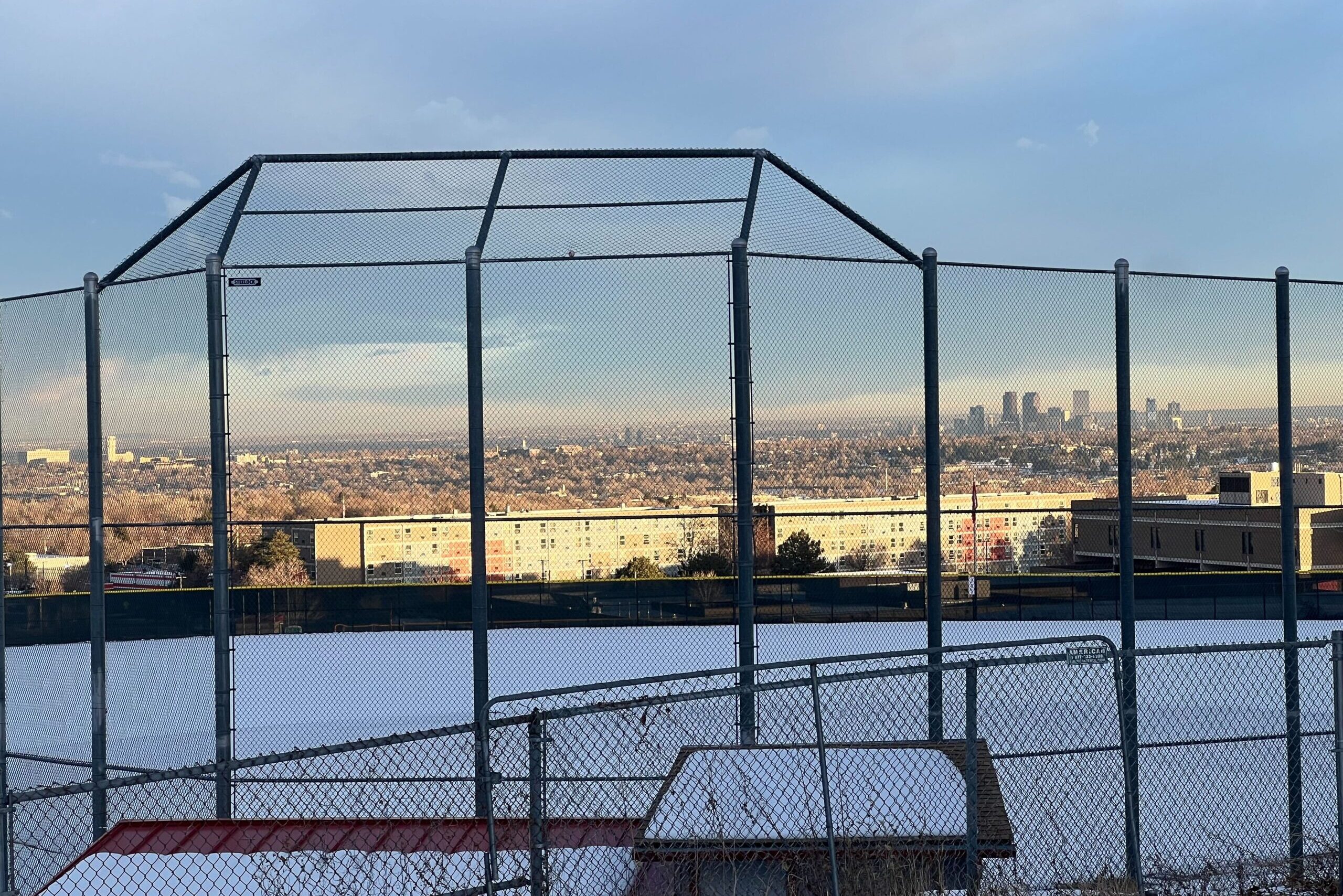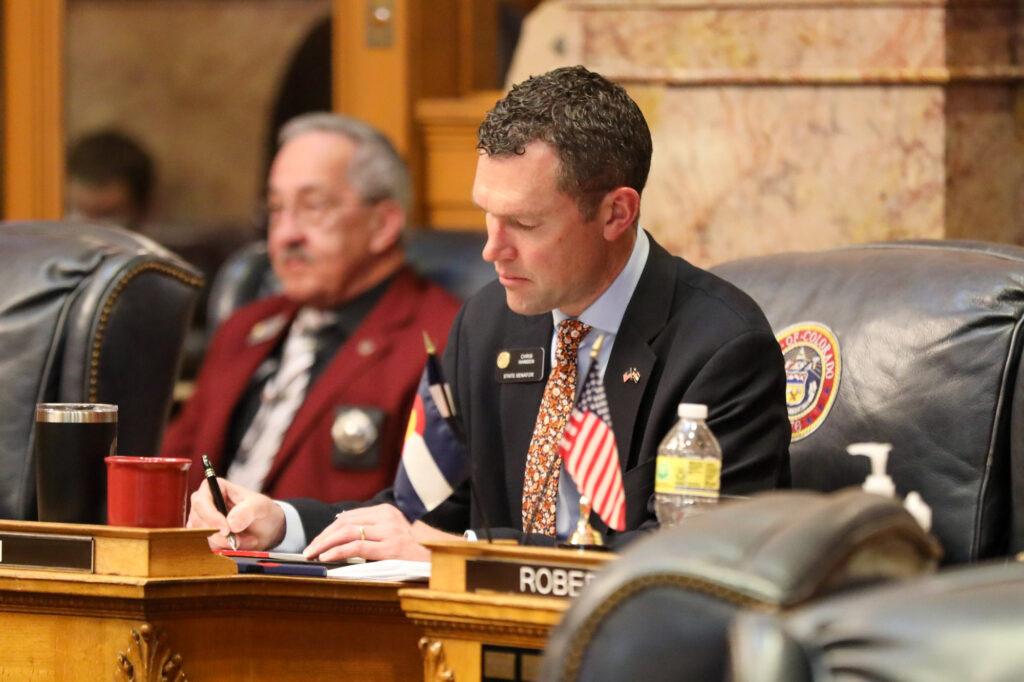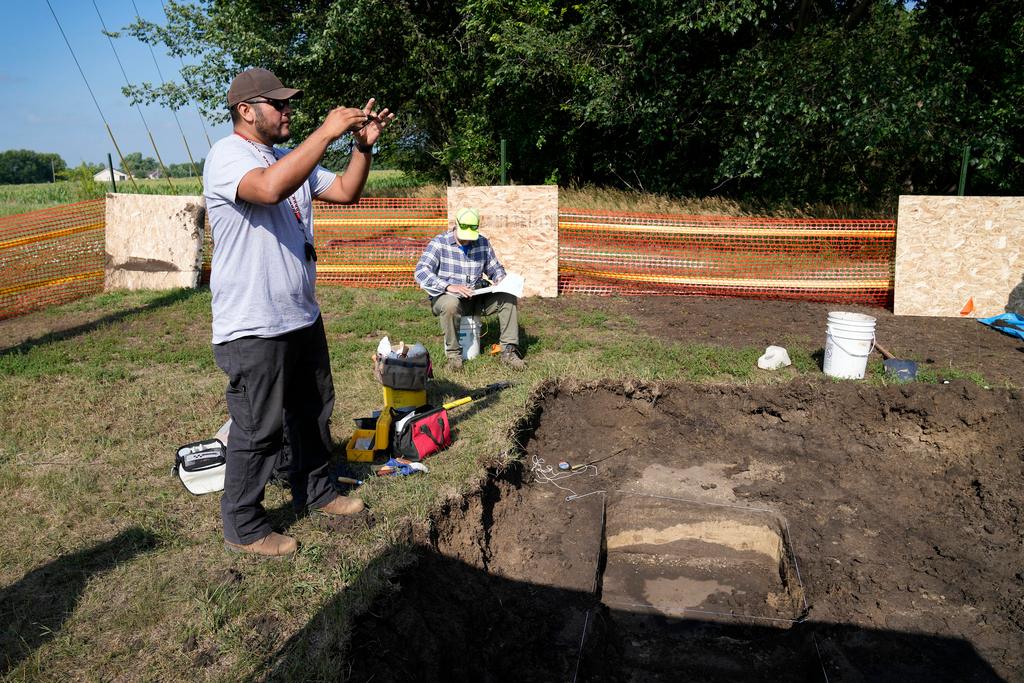
Over the last few years, the business group Colorado Concern has been a big part of the state’s debate over property taxes.
The group has worked on several short-term property tax measures with Gov. Jared Polis and his fellow Democrats at the legislature. More recently, Colorado Concern was part of the coalition behind Prop. HH, the failed Democratic tax measure.
Now, the business group is making a strategic change: It’s working with a major conservative group on a sweeping new property tax proposal that could appear on the Nov. 2024 ballot.
Michael Fields, the Republican strategist who heads up the Advance Colorado Institute, said that winning over the business group changes the political landscape for property taxes.
“I think it makes it much more likely that we'll pass a measure on the ballot this November,” Fields said.
If it’s approved this November, the new measure from the business-Republican alliance would significantly change how property taxes work in Colorado. It would essentially drop property taxes back to 2022 levels for many taxpayers, and it would cap how fast property tax revenues can grow on a statewide level.
Dave Davia, CEO of Colorado Concern, said it’s a reasonable response to the 2023 revaluation that drove many bills up by 30 percent or more.
“People can't afford it. Our efforts are really about our employees,” Davia said. “A 20 percent increase is hard for businesses — small businesses, rather — and homeowners to face. So we set out to fix that.”
Davia only recently took over as head of Colorado Concern, but the group has been working on its own similar plans for ballot measures for months. The group’s board recently approved working directly with the conservative group.
The new alliance signals that the property tax fight may get even more intense. Democrats are working on their own long-term answer for property taxes, including through a bipartisan property tax commission. The legislature could make direct changes to property taxes this year or put a measure on the ballot — putting it in competition with the business-Republican effort.
But Davia disputed the idea that his group has switched sides in the property tax fight.
Colorado Concern is “very willing to work with the administration and continue the work we've done over the years,” he said, arguing that his new measure contains some ideas that Democrats have supported, like lowering the property tax assessment rate.
“We studied aspects of what was important to the governor and the legislature last year, and [our new measure] models that or embraces that,” he said.
How the new proposal would work
Still, the new measure has drawn criticism from Democrats who warn of its impacts on state and local budgets.
If it’s eventually approved by voters, the proposed new measure would slash the taxable value of property across the state — lowering the rates at which property is taxed. This would return property tax bills roughly to 2022 levels, Fields said.
Going forward, the measure also would implement a long-term statewide cap that would restrain property tax revenues. The total amount of property tax money collected by all local governments, combined, couldn’t grow faster than 4 percent a year, with some limited exceptions to allow for new construction.
If the cap were exceeded, the state legislature would have to find a way to either cut property tax rates or get the excess money back to taxpayers. The measure doesn’t prescribe how that would happen, but Fields expects that the legislature would cut property tax rates while finding a way to lessen the impact on rural areas with slow-growing budgets.
Confusing matters somewhat, Fields’ group has already secured a slot on the ballot for a very similar proposal, Initiative #50. Fields said this week that he doesn’t intend to pull that measure. One chief difference between the two approaches is that Initiative #50 would go into the state constitution, making it hard to change, while the new proposal would just be in law, and vulnerable to revision by the legislature.
The end result: Voters could have multiple property tax options on the ballot this year.
The state could have to pay billions in “backfill”
The new alliance has submitted multiple versions of the measure to the state’s Title Board. They include requirements for differing amounts of state “backfill” — the amount the state would pay to local governments to make up for property tax revenues they’re missing out on — though it doesn’t dictate who should be prioritized to get that funding.
“The legislature's going to have to do those negotiations with local governments on who gets the backfill, and how much,” Fields said.
The new measure is also designed to maintain school funding, Fields said. It would force the state government to completely mitigate any effect on school budgets, essentially replacing local property tax dollars with state tax dollars. That would put schools in sharper competition with other state spending priorities in the general budget.
Democratic Sen. Chris Hansen estimated that the conservative measure could require the state to pay $2 billion to $3 billion in backfill for schools and local governments.
“Where does the money come from? You can't just say, ‘Oh, it magically is going to come out of the general fund.’ Colorado voters are super smart. They know that you don't get something for nothing. They know there's no free lunch here, and they're going to see through, I think, those types of proposals,” Hansen said.

In their own plans, Democrats have similarly proposed “backfill” for property tax cuts, but they prefer to pay for it by reducing the TABOR refunds that are paid to Coloradans, rather than by restraining or reducing government spending elsewhere.
Fields stressed that local governments would still have some power over property taxes under the measure. They could try to convince voters to raise local property tax rates — something that’s proved easier in big, liberal cities like Denver than in smaller and more conservative communities. Revenue derived from those kinds of local rate increases wouldn’t count toward the statewide cap.
Lawmakers face new pressure to get their own plan done
Scott Wasserman, president of the progressive Bell Policy Center, said the proposal could raise pressure for lawmakers and the Property Tax Commission to figure out their own solution. He prefers an approach that “smoothes” out sharp increases in taxable value but doesn’t set an “arbitrary cap,” and he wants the tax relief to be aimed at lower-income homeowners.
“The legislature needs to think about a thoughtful approach to make sure there aren't spikes, but that also communities [have enough revenue] to respond to pent-up needs and increases in cost,” he said.
The new business-conservative measure still has some big hurdles to pass before it can appear on voters’ ballots. The language and title of the measure will go for review by legislative staff and the Title Board. Then the supporters would need about 124,000 signatures from voters so that it can appear on the ballot.
There’s no guarantee that will happen. Davia said that his group would also be looking closely at the options that are put forward by the property tax commission next month.
“Certainly if the tax commission comes up with an idea that stands out at any level and is a better policy, we owe that to those volunteers to give that serious consideration. … Absent that, though, this is what we think is fair and balanced because it takes into account a lot of different interests,” he said.
The governor’s office said he would consider all ideas for property taxes.
“The Governor is committed to reducing property taxes and saving Coloradans money and looks forward to the work of the bipartisan Property Tax Task Force this Spring. He will review all ballot measures that qualify for the ballot as we get closer to the election in November to help determine which would best reduce property taxes, which is his normal process,” wrote spokesperson Shelby Wieman in an email.









